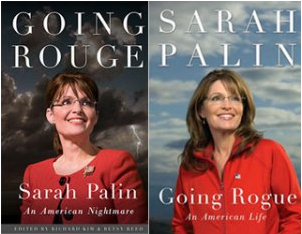Via an email forwarded by Marquette Empowerment, a schedule of events for the occassion. (These should at least be interesting workshops; but it must be said that The Word Warrior’s or an individual contributor’s reporting of an event or events does not constitute an endorsement of said event[s] or the views expressed thereat.):
MONDAY, October 26th
7 pm–Islam’s Heroines, AMU 407
This will be a lecture given by a local community member from the Islamic Society of Milwaukee concerning the many strong and influential women during the life of Muhammad, and their impact and importance during the early history of Islam. Ethnic refreshments will be served.
TUESDAY, October 27th
12:30 pm–Hijab How-to Workshop, AMU 407
We will have a presentation/how to workshop on wrapping the hijab (headscarf) in preparation for Hijab-for-a-Day on Wednesday. We will have girls wearing different styles of wraps, and discuss how it is done and what goes with the wearing of this particular garment.
6 pm–Love, Marriage, and Chocolate, Raynor Conference Rooms
Have you ever wondered what marriage and love is really like in Islam? We will have a young couple and an older couple come in to demonstrate what successful marriages are like in Islam, and to address the attitude of Muhammad (PBUH) toward his wives, and the relationship of Adam and the Eve, the first human couple ever to exist. Chocolate sweets and coffee will be served.
WEDNESDAY, October 28th
HIJAB FOR A DAY–All day, Marquette Campus!! [sic]
Try to wear hijab for a day! Experience what it feels like to dress as a Muslim, and what the wearing of the hijab represents.
7 pm–My Body, My Right, AMU 407
What does modesty mean in different religions? Why is it important? Come find out and share your experiences! We will have a panel of MU professors who will address the concept of modesty and the body in various theologies. Afterwards, you will have a chance to share your thoughts regarding your experience wearing hijab for the day. Refreshments will be served.
THURSDAY, October 29th
6 pm–Muslim Women in the Workplace, AMU 407
Come listen to a panel various Muslim women professionals as they discuss their experiences in fields such as nursing, psychiatry, and medicine. Soup and rolls will be served.
FRIDAY, October 30th
8 pm–Spoken Word Performance, AMU 227
Muslim spoken word artist Tasleem Jamila Firdausee will be coming to perform and to discuss her experiences as a Muslim female in art.
Filed under: events, hijab, marriage, religion, religion: Islam, religion: Sunni Islam | Leave a comment »











![Eternal {photoart II] Eternal {photoart II]](https://live.staticflickr.com/65535/53740436777_ea7f971bf7_s.jpg)